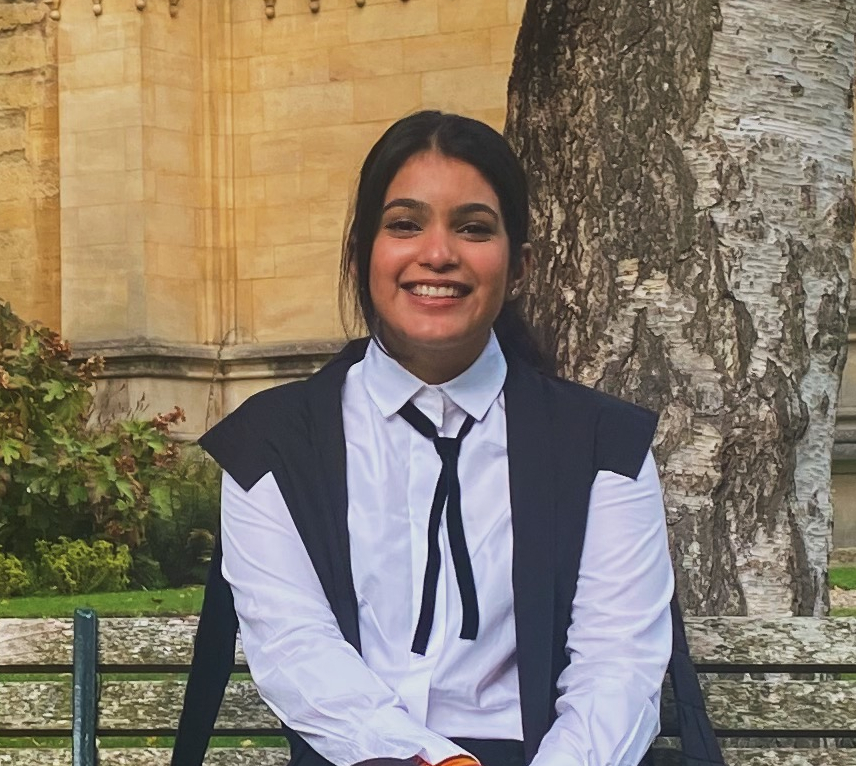Ananya Bhadauria is a full-time student on the MSc Education course. Before she came to study at the department she completed an M.A.(Hons) in International Relations and Law at the University of Edinburgh. She is particularly interested in researching about the impact of the new education policy introduced in India as well as pursue a future in social policy within the field of education to improve access and equity in developing countries.
What do you hope to go on to do once you’ve completed your postgraduate degree? What do you hope to achieve?
I am honestly hoping to work in areas of improving access and equity within the field of higher education in developing countries. I am one of the few lucky ones that have had the opportunity of studying at some of the best institutions of the world that have completely transformed my worldview and made me want to be a better human being and I hope to translate the same to students who deserve it but do not have the means to do so.
What do you most value about the teaching at the department?
For me, it’s the sense of community and belonging. Before arriving, I was so scared of how hard it was going to be for me to be a part of the community and if I was even going to be heard in a sea of brilliant minds. But as it turned out, I became part of a larger family where everyone is welcomed and ideas (no matter how weird they may be, are always heard!
Why do you think it’s important to study education?
Education for me is a tool to change the world for the better and there is no better tool that guarantees that the search for truth never rests. It also guarantees tolerance and the ability to include everyone as we go onto learn more every day.
What’s the community (student & staff) like at the department?
It’s one large family and not just for the time that you’re here, but for life and beyond.
What has your degree taught you most?
The degree has taught me a great deal and just choosing one of the many things about it would be unfair. However, something I value the most was about how we have to be open to all ontologies, epistemologies and axiology. These three key words are always how I weigh everything around me in academia now and it gives me a more all-rounded view as a citizen of this world.
How do you get involved in other research activities within the department and what are they?
There is always something going on and the peer support groups or professors or lecturers or even students send out emails or get in touch or post flyers about it, all you have to do is get involved with just a ‘hi, I am interested in this, would love to get involved’. I attended various seminars throughout my time here and was also a part of the Oxford/Cambridge exchange and it was really cool to meet other students in Cambridge doing research within education and exchange ideas.
What’s your favourite thing about studying at the department?
The people and professors teaching MSc Education (HE) modules.
How has the department supported you through your study?
The department was really helpful with peer support groups on academic writing and getting through your dissertation and much more.
Do you have a mentor in the department, and if so how has this helped you?
I do I think and it’s mostly my supervisor and he was really helpful with my grant applications for my fieldwork and also was instrumental in guiding me through my MSc degree and assuring me it was doable. He is also very open to my ideas and helped me give them structure for my research. The best part is, he’s always reachable and approachable.
What advice would you give to new postgraduate students on how they can get involved in the department community?
Just say hi! And everyone is really friendly and approachable. The world is here and so are you, what better place to start?
What further opportunities have you gained so far through or as a result of your degree?
I have been fortunate enough to have job offers already before ending my degree and have also has the opportunity to make friends across the field to collaborate for research within higher education.
Did you receive any financial help through the University and if so what was it?
I did receive a research grant from Wolfson College for my fieldwork in India. It was for 300 GBP to cover a part of the research costs that was helpful in at least getting a one-way ticket to India.

Education for me is a tool to change the world for the better and there is no better tool that guarantees that the search for truth never rests. It also guarantees tolerance and the ability to include everyone as we go onto learn more every day.





